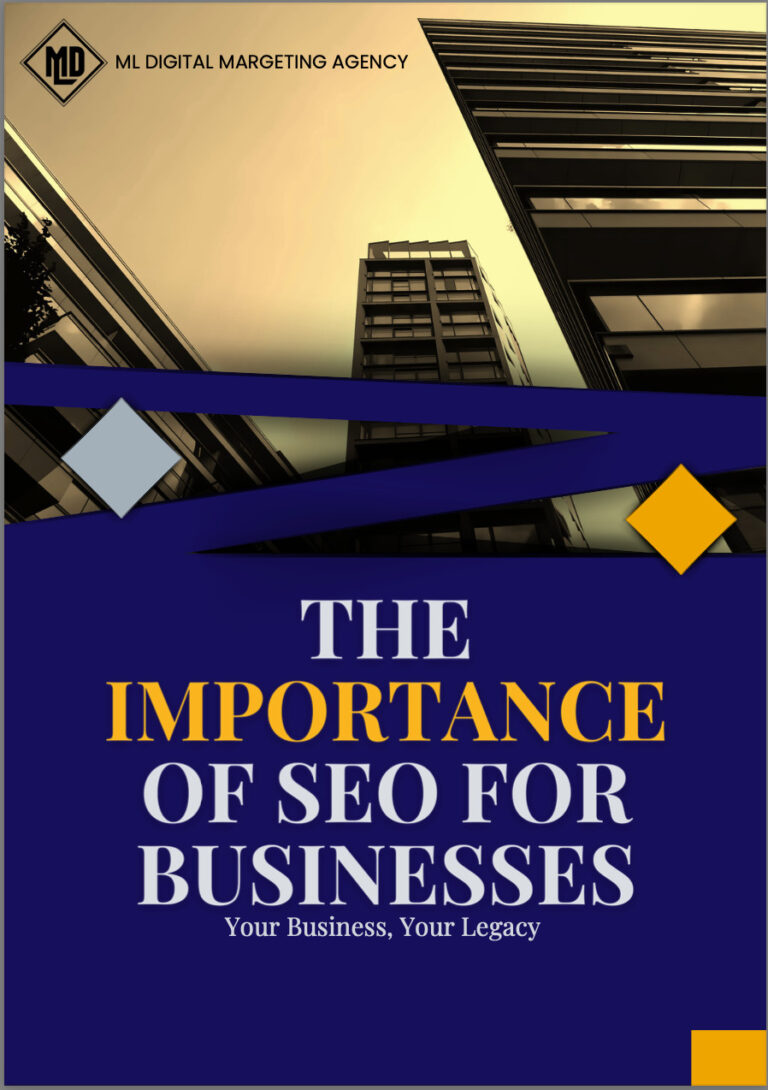Understanding SEO and Its Core Importance
Why SEO Matters for Businesses and Websites
Imagine launching an amazing website, packed with valuable content, but no one finds it. It’s like opening a five-star restaurant in the middle of a deserted island—no foot traffic, no customers, no revenue. This is exactly why SEO is important for business. SEO optimization ensures your website gets found by the right audience, driving organic traffic and increasing conversions. In today’s digital age, ranking on search engines is not just an option; it’s a necessity for business growth.
The Role of Search Engines in Online Visibility
Search engines like Google are essentially matchmakers, connecting users with the most relevant content based on their queries. Google SEO relies on algorithms that assess various factors like content quality, user experience, and backlinks. If your website isn’t properly optimized, it won’t appear in search results—even if you have the best content. Mastering SEO techniques can significantly improve your search engine ranking and visibility.
Common SEO Myths That Hurt Rankings
SEO is surrounded by myths that can derail your efforts. Some believe keyword stuffing still works (spoiler alert: it doesn’t). Others assume SEO is a one-time thing. The truth? SEO is an evolving process that requires regular updates, quality content, and adherence to best practices. Avoiding these pitfalls ensures your website maintains SEO success in the long run.
The Most Important Factor in SEO: Relevance and User Experience
How Google Defines Search Relevance
Google’s ultimate goal is to provide users with relevant and valuable content. This means your content should directly answer search queries while offering additional insights. Gone are the days of keyword stuffing; today, search engines prioritize natural, well-written content that aligns with user intent.
The Impact of User Intent on SEO Success
Think about this: If someone searches for “best hiking shoes,” they likely want product recommendations, not a history lesson on hiking boots. Understanding user intent is crucial for SEO strategy. SEO is important for business because if your content aligns with what users are looking for, search engines reward you with higher rankings.
Why High-Quality Content Still Rules SEO
Content is, and always will be, king. Well-researched, engaging, and SEO best practices-compliant content keeps visitors on your page longer, signaling to search engines that your site is valuable. The better the content, the higher the SEO ranking—it’s that simple.
Essential SEO Elements for Higher Rankings
On-Page SEO – Optimizing Content and Structure
This includes optimizing title tags, meta descriptions, headers, and internal linking. A clear, structured format enhances readability and makes it easier for search engines to crawl your site.
Technical SEO – Enhancing Site Performance
Even the best content won’t rank if your site loads slower than a snail racing uphill. Google prioritizes website speed, mobile-friendliness, and security. Investing in technical SEO ensures your site meets these requirements.
Off-Page SEO – Backlinks and Authority Building
SEO is important for business because it enhances credibility and visibility. Backlinks are like votes of confidence from other websites. The more high-quality sites that link to your content, the more credible your site appears to search engines. SEO fundamentals include link-building strategies like guest blogging, digital PR, and networking with authoritative sites.
Boosting Conversions Through Effective SEO Strategies
The Role of SEO in Driving Targeted Traffic
Ranking high is great, but attracting the right audience is even better. By focusing on targeted keywords and search intent, you can attract users who are genuinely interested in your products or services.
Using SEO to Improve Click-Through Rates (CTR)
A strong SEO strategy doesn’t just get you on the first page; it entices users to click. Optimized meta descriptions, compelling headlines, and structured snippets improve CTR and engagement.
Turning Organic Visitors Into Paying Customers
SEO isn’t just about rankings—it’s about conversions. Once visitors land on your site, persuasive content, clear CTAs, and a smooth user experience can turn them into loyal customers.
Final Thoughts: The Future of SEO and How to Stay Ahead
Adapting to Algorithm Updates and Trends
Google’s algorithm is like an ever-changing puzzle, and SEO is important for business. Staying updated on industry trends ensures your SEO factors remain effective. Keep an eye on core updates, user behavior shifts, and emerging SEO trends.
Actionable Steps to Improve SEO Today
- Conduct a keyword audit and optimize for SEO best practices.
- Improve page speed and mobile responsiveness.
- Invest in high-quality content that aligns with user intent.
- Build a solid backlink strategy.
- Optimize for featured snippets to increase visibility.
Why SEO is an Ongoing Process, Not a One-Time Fix
SEO is like going to the gym—you can’t just work out once and expect lifelong results. It requires consistent effort, monitoring, and adaptation to stay ahead of the competition. Search algorithms evolve, competitors optimize, and market trends shift—your SEO strategy should evolve, too.
At ML Digital Marketing, we specialize in ongoing SEO strategies that drive sustained growth and long-term success. Ready to take your SEO game to the next level? Contact us for a free consultation, and let’s optimize your website for lasting results!
FAQs
1. How long does it take to see SEO results?
SEO is a long-term strategy, and results typically take 3 to 6 months, depending on competition, industry, and optimization efforts.
2. Does social media impact SEO rankings?
While social media doesn’t directly affect rankings, it boosts brand visibility, drives traffic, and helps content get discovered, which can indirectly improve SEO.
3. Can I do SEO on my own, or do I need an expert?
You can handle basic SEO yourself, but for technical SEO, link building, and strategy development, hiring an expert ensures faster and more effective results.
4. Is SEO a one-time effort or an ongoing process?
SEO is ongoing—search engine algorithms evolve, competitors optimize, and user behavior shifts, requiring continuous adjustments to maintain rankings.
5. What’s the biggest SEO mistake businesses make?
Ignoring user experience, keyword stuffing, neglecting mobile optimization, and failing to track performance are common mistakes that hurt rankings.



